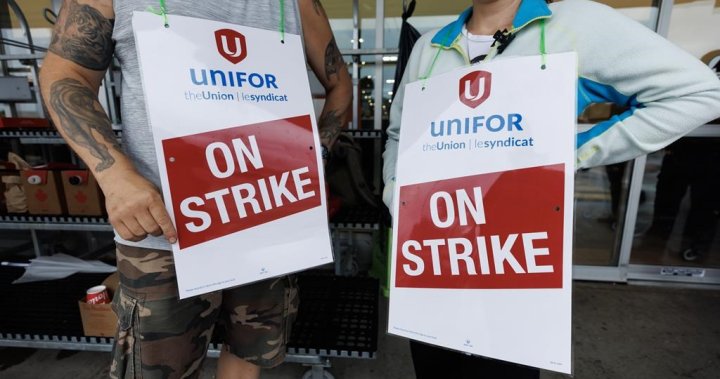
Canadians showing more support for striking workers amid inflation, corporate profits
Global News
An Abacus poll on the dispute between the Ontario government and education workers last year showed more Ontarians blamed the government, not workers, for the dispute.
It was Samantha Henry’s first time on strike, and one that made headlines across the country.
“Some people thought the strike would only last a week, a couple of days. And we went into almost five weeks,” said Henry, one of some 3,700 Metro employees in the Toronto area who walked off the job this summer.
In previous rounds of bargaining that didn’t lead to strikes, Henry says public feedback over workers’ demands was often negative.
“It was all like … ‘What do you expect? She’s a retail worker.’”
This summer felt different. People, including many regular Metro customers, joined workers on picket lines, promised to boycott Metro-owned stores, honked car horns as they drove past and brought gift cards, coffee and snacks.
“I think I ate more doughnuts and Timbits than I ever have in my entire life,” joked Henry.
She thinks the pandemic helped open people’s eyes to how essential retail workers are, noting that many regular customers were irate when grocery stores took workers’ “hero pay” away. But that’s not the whole story. Inflation and rising interest rates have eaten into everyone’s bottom line, and Henry thinks customers are more aligned with the plight of lower-paid workers as a result.
“I think that the sympathy for striking workers is being driven by an affordability crisis that has hit all workers, regardless of union status,” said Larry Savage, a professor in the labour studies department at Brock University.













